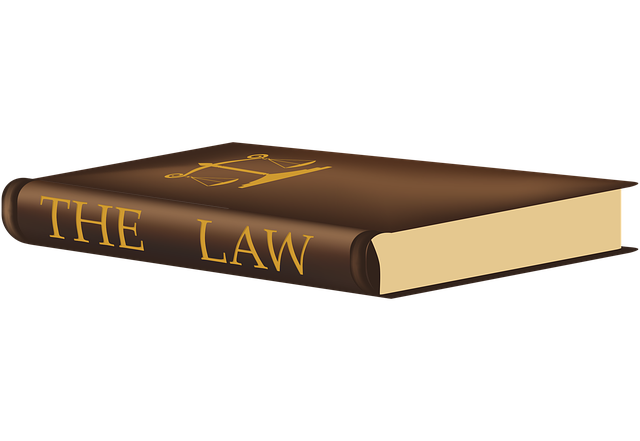Antitrust violation cases differ between civil and criminal proceedings, primarily due to contrasting burdens of proof. Civil lawsuits employ a lower 'preponderance of evidence' standard, making it easier for plaintiffs to win damages or injunctive relief. In contrast, criminal charges demand a higher 'beyond a reasonable doubt' burden, leading to potential severe penalties like fines, imprisonment, and corporate dissolution. Understanding these differences is crucial for developing tailored legal strategies in high-stakes white-collar crime cases, focusing on either compensation or punishment.
“Antitrust violation cases play a critical role in maintaining fair market competition. This article offers an insightful exploration into the nuances of these legal battles, focusing on the distinct differences between civil and criminal proceedings.
From the initial understanding of antitrust laws to the stringent standards of proof required in criminal cases, we dissect the key considerations for each. Discover how the burden of proof varies significantly, shaping the outcomes of these high-stakes cases. Explore these complexities to gain a comprehensive view of antitrust litigation.”
- Understanding Antitrust Violation Cases: A Brief Overview
- The Civil Burden of Proof: What It Entails and Key Considerations
- Criminal Prosecution: Higher Standards and Consequences
- Key Differences Between Civil and Criminal Actions for Antitrust Violations
Understanding Antitrust Violation Cases: A Brief Overview

Antitrust violation cases are legal battles centered around maintaining fair competition within markets. These cases often involve complex allegations of anti-competitive behavior by corporations, such as price-fixing, market allocation, or abuse of dominant market position. Understanding these cases requires recognizing the unique aspects that differentiate them from other business disputes.
One key distinction lies in the differences between civil and criminal burdens of proof. In civil antitrust lawsuits, brought typically by private parties or government agencies, the standard is lower, requiring only a preponderance of evidence to prove an antitrust violation. This makes it easier for plaintiffs to win challenging defense verdicts. In contrast, criminal antitrust charges, often initiated by government prosecutors, carry a higher burden of proof—beyond a reasonable doubt—which is more demanding for the prosecution. These cases thus involve intricate legal strategies tailored to the respective business and its specific alleged misconduct, with the ultimate goal of securing winning challenging defense verdicts.
The Civil Burden of Proof: What It Entails and Key Considerations

In antitrust violation cases, understanding the civil burden of proof is paramount, as it significantly differs from its criminal counterpart. Unlike criminal trials where the prosecution must prove guilt beyond a reasonable doubt, civil cases only require a preponderance of evidence to establish liability. This shift in standard means that plaintiffs bear a different and sometimes less stringent load when presenting their case. In high-stakes cases involving white-collar and economic crimes, this distinction can be crucial.
Key considerations arise from these differences. For instance, the focus shifts from punishing wrongdoing to compensating victims. Thus, while criminal charges may lead to severe penalties for corporations or individuals, civil lawsuits primarily seek damages or injunctive relief. Additionally, the implications for defendants in civil cases extend beyond potential financial losses; they can also impact a company’s reputation and future business prospects, especially if the case garners significant media attention.
Criminal Prosecution: Higher Standards and Consequences

In antitrust violation cases, criminal prosecution stands apart from civil litigation due to its higher standards and more severe consequences. While civil lawsuits focus on compensating harmed parties and ensuring adherence to competition laws, criminal charges aim to punish individuals and respective businesses for deliberate anti-competitive conduct. The burden of proof in criminal cases is stricter; prosecutors must demonstrate guilt beyond a reasonable doubt. This threshold distinguishes criminal antitrust proceedings from their civil counterparts, where the standard is typically lower, focusing on a “preponderance of evidence.”
Consequences of criminal convictions can be far-reaching, including substantial fines, imprisonment for key figures involved, and even corporate dissolution. Such penalties serve as deterrents, aiming to prevent future violations and disrupt anti-competitive practices that may have significant impacts on markets and the wider philanthropic and political communities. Achieving extraordinary results in these cases requires a comprehensive understanding of antitrust laws and the unique nuances of criminal prosecution, ultimately ensuring justice is served for violations that harm market competition.
Key Differences Between Civil and Criminal Actions for Antitrust Violations

When it comes to antitrust violation cases, civil and criminal actions present distinct characteristics. While both aim to penalize unethical business practices, they differ significantly in their approach, burden of proof, and potential outcomes. Civil actions are typically brought by private parties, such as competitors or consumers, seeking damages for harm caused by an antitrust violation. The standard here is a preponderance of evidence, meaning the plaintiff must convince the court that the defendant’s actions were more likely than not to have caused the harm. This lower threshold makes civil cases more accessible but also less punishing in terms of penalties.
In contrast, criminal charges for antitrust violations are usually initiated by government agencies like the Department of Justice or state attorneys general. These high-stakes cases carry severe consequences, including substantial fines and potential imprisonment for individuals found guilty. The criminal burden of proof is significantly higher, requiring the prosecution to establish guilt beyond a reasonable doubt. This stricter standard reflects the gravity of antitrust crimes, which are deemed harmful to the public interest. Unlike civil actions, criminal defenses often involve complex white-collar strategies, focusing on issues like lack of intent or insufficient evidence, as part of a general criminal defense approach.
Antitrust violation cases involve a delicate balance between civil and criminal actions, each with distinct burdens of proof. While civil proceedings focus on compensating victims and promoting market competition, criminal prosecutions aim to deter future misconduct through stricter standards and potentially severe consequences. Understanding the key differences between these two avenues, particularly in terms of burden of proof, is essential for both businesses and legal professionals navigating antitrust laws. By recognizing these distinctions, stakeholders can make informed strategies and ensure fair practices within competitive markets.






